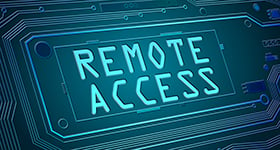
Telefónica and IBM are collaborating to implement blockchain technology in order to streamline core business processes. The plan will focus on the key attributes of this technology to address complex challenges in services delivered by Telefónica. The company hopes to also address registering data and information issues from different sources regarding business and network processes.
What does blockchain technology accomplish? The power of blockchain is applicable to the telecommunications business. Blockchain can participate in an ecosystem with a large network of disparate organizations. The technology establishes a shared, immutable record of all the transactions that take place within a network. Then the technology enables permissioned parties to access trusted data in real time.
By applying the technology to end-to-end telecommunications processes, a new form of command and consent can be introduced into the flow of information that enables significant gains in efficiency and trust. By allowing participating members secure and authorized access to necessary details, blockchain also delivers enhanced privacy and confidentiality.
This project between Telefónica and IBM is aiming to improve the reliability and transparency of information collected by different networks when routing international calls.
Using the IBM Blockchain Platform powered by the IBM Cloud, Telefónica will work to track in real time the certainty and traceability of each international call and its attributes, which are mainly origin, destination and duration. This will be accomplished in a decentralized platform to which all the operators in the chain have permissioned access. This solution is a clear example of how the application of blockchain technology within the telco networks, dramatically enhances the accuracy and immutability of the data generated while delivering different services.
"This project is one of our first initiatives to secure real benefits from the adoption of blockchain in our core business. We believe that the new paradigm of process decentralization that blockchain facilitates perfectly fits with the telecommunications industry and can help us to significantly improve the way we have been traditionally solving the integrations between partners, "said Gonzalo Martín-Villa, chief innovation officer, Telefónica. "Blockchain will allow operators to generate a new layer of confidence in the Internet based not on the players that generate the data and the transactions but on the data itself."
The solution can be applied to many other services. This enables the building of a trustworthy network of peers or other employees who are involved in delivering a digital service such as data consumption, authentication processes, cloud computing or data storage.
The network can then reach a consensus in real-time about the veracity and traceability of the information and data pertaining to the services usage. This information is generated and collected from multiple sources and systems. The process occurs regardless of the owner or the entity that is hosting or operating those systems. The approach dramatically improves the efficiency in business processes that consume this data, such as billing, accounting and reporting.
It can assist to discover fraudulent behavior within end-to-end processes and resolve recurring problems between vendors. It can assist providers and operators such as dispute resolution, commercial losses due to uncollected revenues or discrepancies between the information recorded by each peer.
“In a world that is increasingly focused on data, customer experience, trust and digital ecosystems, blockchain can help communications service providers to streamline internal processes or, as in the project we are working with Telefónica, to increase trust among the different partners in the communications ecosystem, avoiding the need for call data reconciliation and thus achieving high potential benefits like reduced risk, time saving and cost removal,” said Ignacio Martín Santos, managing director for Telefónica Integrated Account, IBM.
Telefónica and IBM are achieving great things in order for your company or business to accomplish great things.
Chrissie Cluney has been a correspondent for IoT Evolution World since 2015. She holds a degree in English with a concentration in writing from the College of Saint Elizabeth.Edited by
Ken Briodagh





